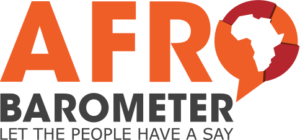A new American relationship with Africa starts with a commitment to prosperity, durable democratic institutions and a mutual respect that acknowledges both sides have much to gain, the Washington Post reports:
Various surveys by Afrobarometer show that more than 6 in 10 Africans are overwhelmingly committed to democracy and its institutions. That pro-democracy sentiment holds strong for youths and particularly the middle class, both rapidly growing segments of societies. The majorities rejecting military regimes and strongman rule by one person is even greater. Wherever there is disappointment about democracy in Africa, it is usually because of associated corruption, Afrobarometer shows.
Inflation is at historic highs in several African economies, adds Joseph Asunka, Afrobarometer’s Chief Executive Officer. Meanwhile, many African countries including Nigeria, Zimbabwe and Democratic Republic of Congo will hold elections in 2023, driving up public spending, increasing inflationary pressures and exacerbating poverty. According to Afrobarometer data, the proportion of Africans experiencing high levels of poverty has increased from 19 per cent in 2014/2015 to 26 per cent in 2021/2022.
 Worse still, many of those countries holding elections are either, like Zimbabwe, in debt distress – that is unable to honour their obligations to creditors – or at high risk of debt distress, like Nigeria. This makes the elections in Zimbabwe and Nigeria critical, he writes for Chatham House.
Worse still, many of those countries holding elections are either, like Zimbabwe, in debt distress – that is unable to honour their obligations to creditors – or at high risk of debt distress, like Nigeria. This makes the elections in Zimbabwe and Nigeria critical, he writes for Chatham House.
Military coups and unconstitutional claims to power are challenging democratic prospects across Africa. Panelists (above) explore ways in which US-Africa investments can better support democracy and youth actors’ role in its development.
Panelist – Odeh Friday, Nigeria Country Director Accountability Lab; Dave Peterson, Africa Director, National Endowment for Democracy (NED); Cynthia Chigwenya, Africa Union Youth for Peace Ambassador for Southern Africa; Dr. Charles Ukeje, Professor of International Relations Obafemi Awolowo University. In dialogue with Dr. Cyril Obi, Program Director of African Peacebuilding Network & Next Generation Social Science Africa Program.
Citizens of 26 African nations may be cleaning their thumbs in preparation for change or the endorsement of more of the same, reports suggest (below). Sixteen African states would hold parliamentary and general elections while 15 nations would hold gubernatorial and other local elections.
— Democracy Digest (@demdigest) January 3, 2023







